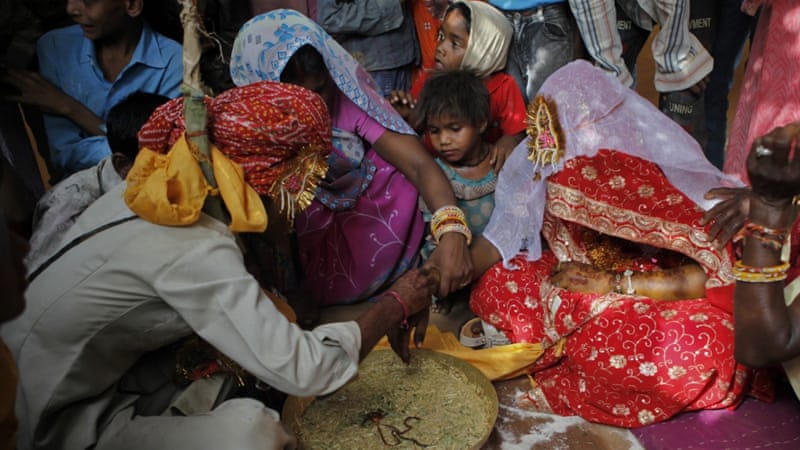|
|||||||||||||||||||||
|
|||||||||||||||||||||
|
|
|||||||||||||||||||||
|
Forced Labor in Uzbekistan Cotton Fields
By: Katherine Hewitt
Impunity Watch Reporter, Asia
TASHKENT, Uzbekistan – Cotton drives the Uzbek economy. The country is the sixth largest producer of cotton. It is commonly known as “white gold.” Historically, it has a long tradition as part of the economy, being cultivated as far back as the 5th or 6th century. As part of the Soviet Union, Uzbekistan’s cotton industry boomed. The state controlled the production, output, input, and quotas of collective farms.

Twenty-six years after the fall of the Soviet Union, the Uzbekistan government still controls the cotton industry. The government controls extensive acres of cotton fields throughout the country. They continue to control the production and harvest of the cotton.
Cotton grown in Uzbekistan is not harvested by machines, but rather hand picked by 2 million forced laborers. The government calls on citizens to go into the field during the harvest for “work-for-the-nation days”. Laborers include teachers, nurses, university students, children, government employees, the unemployed, and those benefiting from government aid. It is considered their patriotic duty to do so.
This causes issues of child labor, children missing school, significant lack of teachers in classrooms, and too few medical staff present in hospitals.
The forced laborers are coerced to do so. Refusal to work leads to threats of penalties, dismissal and expulsions from jobs, and loss of benefits. For those who can afford it, one can pay for a “replacement” in the field or even pay to avoid work completely. The cost can be up to half the monthly salary of a citizen.
Each day of work, individuals are required to meet a quota of 50 kilograms. Most workers serve on average 12 days. They are paid roughly 5 cents per kilo collected.
There is immense pressure for farmers and overseers to produce large yields to support the economy. One such official, Asilbek Yusupov , received a brutal verbal attack for not meeting quotas early in October. The insulting language, derogatory words and language left Yusupov so shaken that he suffered a stroke moments after returning to his office. He later died in hospital.
For more information, please see:
Human Rights Watch – Uzbekistan: Some Wokers Excused from Cotton Fields – 5 October 2017
Azernews – Uzbekistan to switch to mechanized harvesting of cotton – 6 October 2017
Indian Supreme Court Rules Sex with Minor Bride as Rape
Impunity Watch Reporter, Asia
Under the current law, the legal age of consent and marriage is 18. In the rural parts of the country, child marriages are not uncommon. Currently, there are more than 26 million child brides in India according to the United Nation’s children agency. Based on the agency’s report, between 2008 and 2014, more than 47% of the girls were married before their 18th birthday. Furthermore, an estimated 18 percent of the girls were married by the age of 15. It is reported that most of the girls were from poor families with little education.
Previous Indian governments have defended the law as they believed the country’s poor social and economic conditions have made child marriage an unfortunate reality. Moreover, early marriage has been a part of the Indian culture though the “guana” ceremony.
Many activists around the country praised the recent decision as a “positive step in the right direction.” A member of the All India Democratic Women’s Association recently stated that “we strongly feel that this decision of the Supreme Court will work in impacting child marriages.”
Although activists still believe that the Indian Supreme Court’s decision is difficult to enforce, many agree that it will have long-lasting consequences.
For more information, please see:
The Guardian – Sex with underage wife is rape, Indian supreme court rules – 11 October, 2017
BBC – India Supreme Court rules sex with child bride is rape – 11 October, 2017
Al Jazeera – Indian court rules sex with minor wife is rape – 12 October, 2017
Civitas Maxima: Press Release – Jungle Jabbah Guilty Verdict
|
Uruguay seats first transgender senator
By: Emily Green
Impunity Watch Reporter, South America
MONTEVIDEO, Uruguay – On Tuesday, Michelle Suarez became the first transgender senator ever to be seated in Uruguay. She vows to use her position to expand and protect the rights of transgender people throughout South America.

The 34-year-old lawyer and activist assumed her seat in the upper chambers of Congress to represent the Communist Party. Her goal is to push a law that would let transgender people change their legal identities without needing the approval of a judge. The law would also mandate that the government set aside one percent of jobs for transgender people. Finally, a pension would be established to compensate transgender people who were persecuted during Uruguay’s decade under military dictatorship.
“Uruguay has evolved, but it’s still a discriminatory country,” Suarez told the Associated Press. With her position, she seeks to increase debate and action for LGBT rights within the Senate. Her top priority is drafting the Comprehensive Trans Act, which she co-authored, and will guarantee rights to people of all sexual orientation and socio-economic status.
Suarez revealed that she was fifteen when she acknowledged that she was a woman living in a male body. She attributes much of her success to her parents for accepting her. While growing up, she always had the support of her family but was discriminated against by classmates and teachers. “It was a tough time,” Suarez said. “People who knew me began to harass me.”
Regardless, she graduated high school with top grades and became the first transgender person to earn a law degree in the country of 33 million people. She began working as an activist for gender rights in 2009 as a way to cope with the loss of her mother.
Prior to gaining her seat, Suarez helped draft a bill that legalized gay marriage in 2013. She also worked as an activist and legal adviser for an LGBT rights organization, Ovejas Negras (Black Sheep).
The underlying attitude in Uruguay is still macho and fosters fierce resistance to LGBTQ issues. Suarez points out the prominent discrimination faced by Uruguay’s trans community of about 900 individuals. Because of it, gaining stable employment is difficult and many are pushed into sex work. Meanwhile, neighboring countries such as Argentina and Chile have started to make movements toward gender diversity.
“For the same facts, sayings, ways of feeling and thinking that at some point in my life I was harassed, persecuted and sanctioned, today I am applauded by many.” Suarez adds, “there has been positive change.”
For more information, please see:
Telesur – Lawyer and LGBT Activist to be Uruguay’s First Transgender Senator – 6 October 2017
Washington Post – Uruguay’s 1st transgender senator seated, vows protection – 10 October 2017
Fox News – Uruguay: first transgender senator assumes senate seat – 10 October 2017
El Observador – Michelle Suarez, the first trans senator in Uruguayan history – 10 October 2017






 Independent Legal Representation
Independent Legal Representation